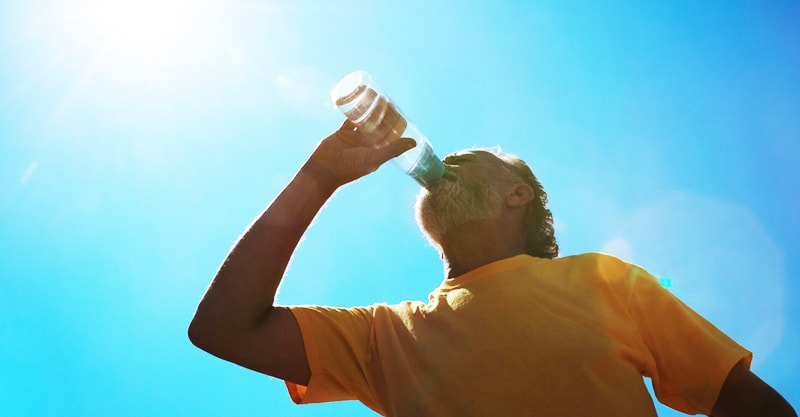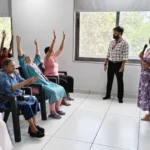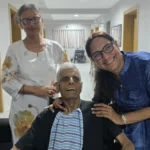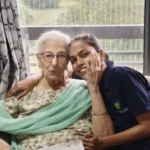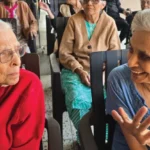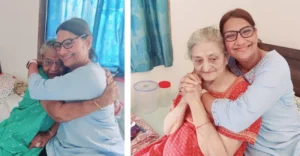As we age, our ability to deal with high temperatures & high humidity decreases. Diabetes and lung disease are more common among older people. This can make it harder to deal with heatwaves. It is crucial that older adults, their friends, family, and health care providers pay close attention to these effects during hot times and take steps to avoid them.
Here are some tips to keep older adults safe during heatwaves:
1. Drink more water
Dehydration is more common in the 60s than in the 70s. Hot weather can increase this risk. Insufficient water can cause dizziness, nausea, and even falls.
2. Find or create a cool spot for you or your loved ones
Old-fashioned methods like closing blinds, turning off the sun, running fans and air conditioners can help seniors stay cool and safe. Cool showers and baths can also be useful, as well as running cool water over certain parts of the body, or keeping cool, damp cloths nearby.
3. Avoid outdoor activities
Your garden might need your attention. The dog may need exercise. Or your regular walk partners may want to continue their routine.
However, it is not the right time to keep to a routine in hot weather. You, or your loved ones, can give yourself permission to take a break from the weeding and walking for a few days. You can ask a neighbor to take care of the pet and mow the lawn.
It’s also a good idea not to consume alcohol or caffeine during heat waves. They can also impact your ability to recognize and respond to heat.
4. Do you feel sick? Don’t wait!
When older adults feel the most severe effects of high temperatures, they might need emergency treatment.
Call your doctor or clinic to seek treatment for any symptoms that you may be experiencing. They can offer advice and help you find resources in your local area.
Other symptoms include feeling dizzy or faint, nausea, headaches, rapid pulse, muscle cramps, and feeling tired. You should be aware of any changes in behavior, such as confusion, combativeness, or delirium.
Medication can cause you to sweat less and impair circulation if you have heart disease, high blood pressure, or any other illness. This helps your body cool down.
If you have any medical concerns, talk to your doctor or pharmacist about any heat-related issues you should be aware of.
5. Being safe under the care of Assisted Living facilities
Heatwaves can pose special risks for those who live alone or are someone with special needs.
Whether your elderly relatives live nearby or across the country or in a different state, and if you cannot call or contact them when you know they live alone, If they have a serious illness and you are unable to care for them, it is a good idea to place them in assisted living facilities.
Recognizing and Treating Heat-Related Illnesses
Even short exposure to high temperatures can result in health problems that will be life-threatening. To make sure that you simply receive the proper treatment, it’s important to be able to identify and recognize heat-related illnesses.
Heat Rash
Heat rash refers to skin irritation that’s caused by excessive sweating in hot and humid conditions. Although it can happen at any age, it’s more common in children younger than adults.
Signs
A rash may be a cluster of small blisters or pimples that appears sort of a cluster. It’s more common to develop on the neck, upper chest, under breasts, elbow creases, and other skin folds.
Treatment
- It is best to make a cool, more humid environment.
- Dry the realm.
- You can use toilet powder to enhance comfort. However, avoid creams and ointments that keep the skin moistened and warm.
- Heat rash treatment is simple and doesn’t usually require medical attention.
Heat Cramps
Heat cramps are commonest in those who sweat lots while exercising. Painful cramps can occur when the body has lost an excessive amount of salt and moisture. Heat cramps also can be an indication of warmth exhaustion.
Signs
Heat cramps may be muscle spasms or pains that occur most typically within the abdomen, arms, or legs. they’ll also occur when there’s lots of strenuous activity.
Treatment
- Seek medical attention if you’ve got an issue along with your heart or are following a coffee sodium diet.
- Retire from all activities and take a rest in a very shaded, cool area.
- After the cramps subside don’t return to strenuous activity. this might result in heat stroke or exhaustion.
- Drink fluids like water, fruit juices, and sports drinks.
Heat Exhaustion
Heat exhaustion refers to the body’s reaction to excessive sweat loss and therefore the consequent increase in salt and water. people that add in hot environments, or are elderly, with high vital signs, and people who have high pressure levels are most in danger of warmth exhaustion.
Signs
- Heavy sweating
- Paleness
- Muscle cramps
- Tiredness, Weakness
- Dizziness, Headache
- Nausea, Vomiting
- Fainting
- The skin may feel cool and moist.
- The pulse rate and breathing speed are rapid and shallow, while the breath is going to be shallow and shallow.
Heat exhaustion can cause heat stroke if left untreated.
Seek medical attention immediately!
Treatment
These are some cooling measures that may be beneficial:
- Rest
- A cool shower, bath, or ablution
- A conditioned environment
- Lightweight clothing
Heat Stroke
Heatstroke is when the body’s temperature increases rapidly. The sweating mechanism malfunctions and also the body cannot settle down. blood heat can stand up to 106oF. If emergency treatment isn’t received, heatstroke can result in permanent disability or death.
Signs
There are many warning signs that heatstroke can occur, but they may include:
- Temperatures above 103o
- No sweating, red, hot, and dry skin
- Strong pulse with rapid acceleration
- Throbbing headache
- Dizziness
- Nausea
- Fainting
- Confusion
- Unconsciousness
Treatment
- Take the victim to a secure place.
- Use whatever method is obtainable to quickly cool the victim.
- Wrap the victim in an exceedingly cool, damp sheet and fan vigorously.
- Use cool water to spray or sponge.
- Only allow yourself to be awake and alert while you soak within the shallow, cool water.
- Use a cool shower to dry.
- Keep a watch on the victim’s blood heat and funky down until it drops to 101-102o.
For further assistance, contact a hospital emergency department if emergency medical personnel aren’t available.

